- Home
- Nora Roberts
The Novels of Nora Roberts, Volume 2 Page 7
The Novels of Nora Roberts, Volume 2 Read online
Page 7
“I’ve been working too hard.”
Frowning, he looked deliberately at the camera hanging from a strap around her neck. “Doesn’t look like you’re taking time off to me.”
In an absent gesture, she cupped a hand under the camera. “Old habits are hard to break.”
“They are that.” He huffed out a breath. “There’s a pretty light on the water today, and the waves are up. Guess it’d make a nice picture.”
“I’ll check it out. Thanks.”
“Take a hat next time. You’ll likely burn.”
“Yes, you’re right. I’ll remember.”
He could think of nothing else, so he nodded and started up the path, moving past her. “Mind the sun.”
“I will.” She turned away quickly, walking blindly now because she had smelled the island on him, the rich, dark scent of it, and it broke her heart.
MILES away in the hot red glow of the darkroom light, he slipped paper, emulsion side up, into a tray of developing fluid. It pleased him to re-create the moment from so many years before, to watch it form on the paper, shadow by shadow and line by line.
He was nearly done with this phase and wanted to linger, to draw out all the pleasure before he moved on.
He had driven her back to Sanctuary. The idea made him chuckle and preen. Nothing could have been more perfect. It was there that he wanted her. Otherwise he would have taken her before, half a dozen times before.
But it had to be perfect. He knew the beauty of perfection and the satisfaction of working carefully toward creating it.
Not Annabelle, but Annabelle’s daughter. A perfect circle closing. She would be his triumph, his masterpiece.
Claiming her, taking her, killing her.
And every stage of it would be captured on film. Oh, how Jo would appreciate that. He could barely wait to explain it all to her, the one person he was certain would understand his ambition and his art.
Her work drew him, and his understanding of it made him feel intimate with her already. And they would become more intimate yet.
Smiling, he shifted the print from the developing tray to the stop bath, swishing it through before lifting it into the fixer. Carefully, he checked the temperature of the wash, waiting patiently until the timer rang and he could switch on the white light and examine the print.
Beautiful, just beautiful. Lovely composition. Dramatic lighting—such a perfect halo over the hair, such lovely shadows to outline the body and highlight skin tones. And the subject, he thought. Perfection.
When the print was fully fixed, he lifted it out of the tray and into the running water of the wash. Now he could allow himself to dream of what was to come.
He was closer to her than ever, linked to her through the photographs that reflected each of their lives. He could barely wait to send her the next. But he knew he must choose the time with great care.
On the worktable beside him a battered journal lay open, its precisely written words faded from time.
The decisive moment is the ultimate goal in my work. Capturing that short, passing event where all the elements, all the dynamics of a subject reach a peak. What more decisive moment can there be than death? And how much more control can the photographer have over this moment, over the capturing of it on film, than to plan and stage and cause that death? That single act joins subject and artist, makes him part of the art, and the image created.
Since I will kill only one woman, manipulate only one decisive moment, I have chosen her with great care.
Her name is Annabelle.
With a quiet sigh, he hung the print to dry and turned on the white light to better study it.
“Annabelle,” he murmured. “So beautiful. And your daughter is the image of you.”
He left Annabelle there, staring, staring, and went out to complete his plans for his stay on Desire.
FIVE
THE ferry steamed across Pelican Sound, heading east to Lost Desire. Nathan Delaney stood at the starboard rail as he had once before as a ten-year-old boy. It wasn’t the same ferry, and he was no longer a boy, but he wanted to re-create the moment as closely as possible.
It was cool with the breeze off the water, and the scent of it was raw and mysterious. It had been warmer before, but then it had been late May rather than mid-April.
Close enough, he thought, remembering how he and his parents and his young brother had all crowded together at the starboard rail of another ferry, eager for their first glimpse of Desire and the start of their island summer.
He could see little difference. Spearing up from the land were the majestic live oaks with their lacy moss, cabbage palms, and glossyleaved magnolias not yet in bloom.
Had they been blooming then? A young boy eager for adventure paid little attention to flowers.
He lifted the binoculars that hung around his neck. His father had helped him aim and focus on that long-ago morning so that he could catch the quick dart of a woodpecker. The expected tussle had followed because Kyle had demanded the binoculars and Nathan hadn’t wanted to give them up.
He remembered his mother laughing at them, and his father bending down to tickle Kyle to distract him. In his mind, Nathan could see the picture they had made. The pretty woman with her hair blowing, her dark eyes sparkling with amusement and excitement. The two young boys, sturdy and scrubbed, squabbling. And the man, tall and dark, long of leg and rangy of build.
Now, Nathan thought, he was the only one left. Somehow he had grown up into his father’s body, had gone from sturdy boy to a man with long legs and narrow hips. He could look in a mirror and see reflections of his father’s face in the hollow cheeks and dark gray eyes. But he had his mother’s mouth, firmly ridged, and her deep brown hair with hints of gold and red. His father had said it was like aged mahogany.
Nathan wondered if children were really just montages of their parents. And he shuddered.
Without the binoculars he watched the island take shape. He could see the wash of color from wildflowers—pinks and violets from lupine and wood sorrel. A scatter of houses was visible, a few straight or winding roads, the flash of a creek that disappeared into the trees. Mystery was added by the dark shadows of the forest where feral pigs and horses had once lived, the gleam of the marshes and the blades of waving grasses gold and green in the streaming morning sunlight.
It was all hazed with distance, like a dream.
Then he saw the gleam of white on a rise, the quick wink that was sun shooting off glass. Sanctuary, he thought, and kept it in his sights until the ferry turned toward the dock and the house was lost from view.
Nathan turned from the rail and walked back to his Jeep. When he was settled inside with only the hum of the ferry’s engines for company, he wondered if he was crazy coming back here, exploring the past, in some ways repeating it.
He’d left New York, packed everything that mattered into the Jeep. It was surprisingly little. Then again, he’d never had a deepseated need for things. That had made his life simpler through the divorce two years before. Maureen had been the collector, and it saved them both a great deal of time and temper when he offered to let her strip the West Side apartment.
Christ knew she’d taken him up on it and had left him with little more than his own clothes and a mattress.
That chapter of his life was over, and for nearly two years now he’d devoted himself to his work. Designing buildings was as much a passion as a career for him, and with New York as no more than a home base, he had traveled, studying sites, working wherever he could set up his drawing board and computer. He’d given himself the gift of time to study other buildings, explore the art of them, from the great cathedrals in Italy and France to the streamlined desert homes in the American Southwest.
He’d been free, his work the only demand on his time and on his heart.
Then he had lost his parents, suddenly, irrevocably. And had lost himself. He wondered why he felt he could find the pieces on Desire.
But he was commit
ted to staying at least six months. Nathan took it as a good sign that he’d been able to book the same cottage his family had lived in during that summer. He knew he would listen for the echo of their voices and would hear them with a man’s ear. He would see their ghosts with a man’s eyes.
And he would return to Sanctuary with a man’s purpose.
Would they remember him? The children of Annabelle?
He would soon find out, he decided, when the ferry bumped up to the dock.
He waited his turn, watching as the blocks were removed from the tires of the pickup ahead of him. A family of five, he noted, and from the gear he could see that they would be camping at the facility the island provided. Nathan shook his head, wondering why anyone would choose to sleep in a tent on the ground and consider it a vacation.
The light dimmed as clouds rolled over the sun. Frowning, he noted that they were coming in fast, flying in from the east. Rain could come quickly to barrier islands, he knew. He remembered it falling in torrents for three endless days when he’d been there before. By day two he and Kyle had been at each other’s throats like young wolves.
It made him smile now and wonder how in God’s name his mother had tolerated it.
He drove slowly off the ferry, then up the bumpy, pitted road leading away from the dock. With his windows open he could hear the cheerfully blaring rock and roll screaming out of the truck’s radio. Camper Family, he thought, was already having a great time, impending rain or not. He was determined to follow their example and enjoy the morning.
He would have to face Sanctuary, of course, but he would approach it as an architect. He remembered that its heart was a glorious example of the Colonial style—wide verandas, stately columns, tall, narrow windows. Even as a child he’d been interested enough to note some of the details.
Gargoyle rainspouts, he recalled, that personalized rather than detracted from the grand style. He’d scared the piss out of Kyle by telling him they came alive at night and prowled.
There was a turret, with a widow’s walk circling it. Balconies jutting out with ornate railings of stone or iron. The chimneys were softhued stones mined from the mainland, the house itself fashioned of local cypress and oak.
There was a smokehouse that had still been in use, and slave quarters that had been falling to ruin, where he and Brian and Kyle had found a rattler curled in a dark corner.
There were deer in the forest and alligators in the marshes. Whispers of pirates and ghosts filled the air. It was a fine place for young boys and grand adventures. And for dark and dangerous secrets.
He passed the western marshlands with their busy mud and thin islands of trees. The wind had picked up, sending the cordgrass rippling. Along the edge two egrets were on patrol, their long legs like stilts in the shallow water.
Then the forest took over, lush and exotic. Nathan slowed, letting the truck ahead of him rattle out of sight. Here was stillness, and those dark secrets. His heart began to pound uncomfortably, and his hands tightened on the wheel. This was something he’d come to face, to dissect, and eventually to understand.
The shadows were thick, and the moss dripped from the trees like webs of monstrous spiders. To test himself he turned off the engine. He could hear nothing but his own heartbeat and the voice of the wind.
Ghosts, he thought. He would have to look for them there. And when he found them, what then? Would he leave them where they drifted, night after night, or would they continue to haunt him, muttering to him in his sleep?
Would he see his mother’s face, or Annabelle’s? And which one would cry out the loudest?
He let out a long breath, caught himself reaching for the cigarettes he’d given up over a year before. Annoyed, he turned the ignition key but got only a straining rumble in return. He pumped the gas, tried it again with the same results.
“Well, shit,” he muttered. “That’s perfect.”
Sitting back, he tapped his fingers restlessly on the wheel. The thing to do, of course, was to get out and look under the hood. He knew what he would see. An engine. Wires and tubes and belts. Nathan figured he knew as much about engines and wires and tubes as he did about brain surgery. And being broken down on a deserted road was exactly what he deserved for letting himself be talked into buying a friend’s secondhand Jeep.
Resigned, he climbed out and popped the hood. Yep, he thought, just as he’d suspected. An engine. He leaned in, poked at it, and felt the first fat drop of rain hit his back.
“Now it’s even more perfect.” He shoved his hands in the front pockets of his jeans and scowled, continued to scowl while the rain pattered on his head.
He should have known something was up when his friend had cheerfully tossed in a box of tools along with the Jeep. Nathan considered hauling them out and beating on the engine with a wrench. It was unlikely to work, but it would at least be satisfying.
He stepped back, then froze as the ghost stepped out of the forest shadows and watched him.
Annabelle.
The name swam through his mind, and his gut clenched in defense. She stood in the rain, still as a doe, her smoky red hair damp and tangled, those big blue eyes quiet and sad. His knees threatened to give way, and he braced a hand on the fender.
Then she moved, pushed back her wet hair. And started toward him. He saw then that it was no ghost, but a woman. It was not Annabelle, but, he was sure, it was Annabelle’s daughter.
He let out the breath he’d been holding until his heart settled again.
“Car trouble?” Jo tried to keep her voice light. The way he was staring at her made her wish she’d stayed in the trees and let him fend for himself. “I take it you’re not standing here in the rain taking in the sights.”
“No.” It pleased him that his voice was normal. If there was an edge to it, the situation was cause enough to explain it. “It won’t start.”
“Well, that’s a problem.” He looked vaguely familiar, she thought. A good face, strong and bony and male. Interesting eyes as well, she mused, pure gray and very direct. If she were inclined to portrait photography, he’d have been a fine subject. “Did you find the trouble?”
Her voice was honey over cream, gorgeously southern. It helped him relax. “I found the engine,” he said and smiled. “Just where I suspected it would be.”
“Uh-huh. And now?”
“I’m deciding how long I should look at it and pretend I know what I’m looking at before I get back in out of the rain.”
“You don’t know how to fix your car?” she asked, with such obvious surprise that he bristled.
“No, I don’t. I also own shoes and don’t have a clue how to tan leather.” He started to yank down the hood, but she raised a hand to hold it open.
“I’ll take a look.”
“What are you, a mechanic?”
“No, but I know the basics.” Elbowing him aside, she checked the battery connections first. “These look all right, but you’re going to want to keep an eye on them for corrosion if you’re spending any time on Desire.”
“Six months or so.” He leaned in with her. “What am I keeping my eye on?”
“These. Moisture can play hell with engines around here. You’re crowding me.”
“Sorry.” He shifted his position. Obviously she didn’t remember him, and he decided to pretend he didn’t remember her. “You live on the island?”
“Not anymore.” To keep from bumping it on the Jeep, Jo moved the camera slung around her neck to her back.
Nate stared at it, felt the low jolt. It was a high-end Nikon. Compact, quieter and more rugged than other designs, it was often a professional’s choice. His father had had one. He had one himself.
“Been out taking pictures in the rain?”
“Wasn’t raining when I left,” she said absently. “Your fan belt’s going to need replacing before long, but that’s not your problem now.” She straightened, and though the skies had opened wide, seemed oblivious to the downpour. “Get in and try it so I
can hear what she sounds like.”
“You’re the boss.”
Her lips twitched as he turned and climbed back into the Jeep. No doubt his male ego was dented, she decided. She cocked her head as the engine groaned. Lips pursed, she leaned back under the hood. “Again!” she called out to him, muttering to herself. “Carburetor.”
“What?”
“Carburetor,” she repeated and opened the little metal door with her thumb. “Turn her over again.”
This time the engine roared to life. With a satisfied nod, she shut the hood and walked around to the driver’s side window. “It’s sticking closed, that’s all. You’re going to want to have it looked at. From the sound of it, you need a tune-up anyway. When’s the last time you had it in?”
“I just bought it a couple of weeks ago. From a former friend.”
“Ah. Always a mistake. Well, it should get you where you’re going now.”
When she started to step back, he reached through the window for her hand. It was narrow, he noted, long, both elegant and competent. “Listen, let me give you a lift. It’s pouring, and it’s the least I can do.”
“It’s not necessary. I can—”
“I could break down again.” He shot her a smile, charming, easy, persuasive. “Who’ll fix my carburetor?”
It was foolish to refuse, she knew. More foolish to feel trapped just because he had her hand. She shrugged. “All right, then.” She gave her hand a little tug, was relieved when he immediately released it. She jogged around the Jeep and climbed dripping into the passenger seat.
“Well, the interior’s in good shape.”
“My former friend knows me too well.” Nathan turned on the wipers and looked at Jo. “Where to?”
“Up this road, then bear right at the first fork. Sanctuary isn’t far—but then nothing is on Desire.”
“That’s handy. I’m heading to Sanctuary myself.”
“Oh?” The air in the cab was thick and heavy. The driving rain seemed to cut them off from everything, misting out the trees, muffling all the sound. Reason enough to be uncomfortable, she told herself, but she was sufficiently annoyed with her reaction to angle her head and meet his eyes directly. “Are you staying at the big house?”

 A Little Magic
A Little Magic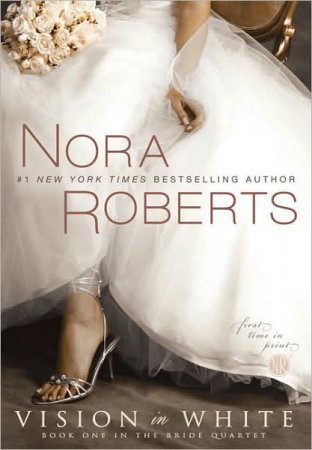 Vision in White
Vision in White True Betrayals
True Betrayals The Next Always
The Next Always A Man for Amanda
A Man for Amanda Born in Fire
Born in Fire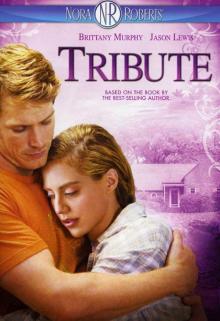 Tribute
Tribute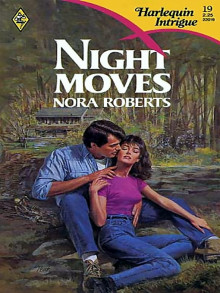 Night Moves
Night Moves Dance Upon the Air
Dance Upon the Air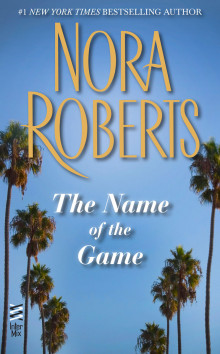 The Name of the Game
The Name of the Game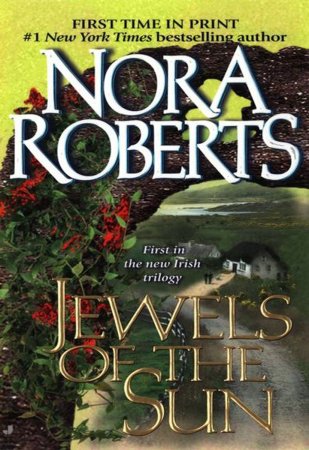 Jewels of the Sun
Jewels of the Sun River's End
River's End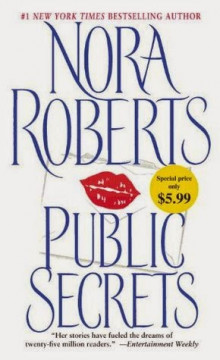 Public Secrets
Public Secrets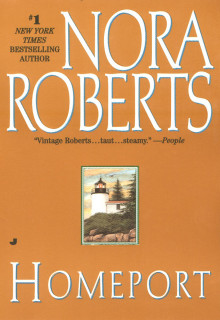 Homeport
Homeport Private Scandals
Private Scandals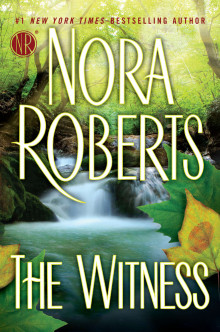 The Witness
The Witness Blithe Images
Blithe Images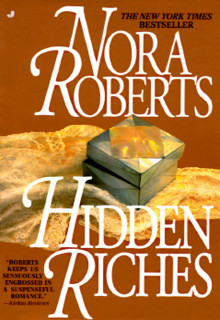 Hidden Riches
Hidden Riches Key of Light
Key of Light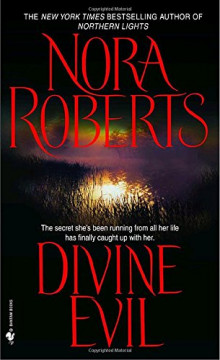 Divine Evil
Divine Evil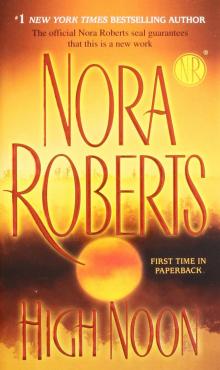 High Noon
High Noon Blue Dahlia
Blue Dahlia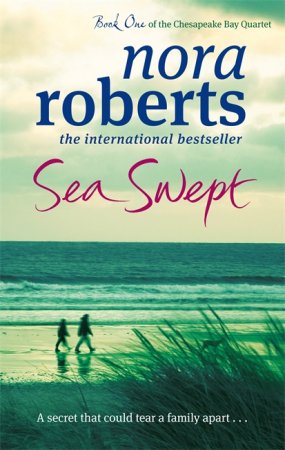 Sea Swept
Sea Swept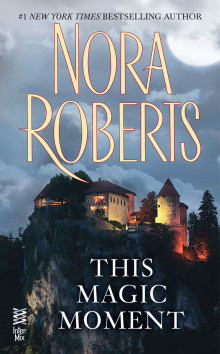 This Magic Moment
This Magic Moment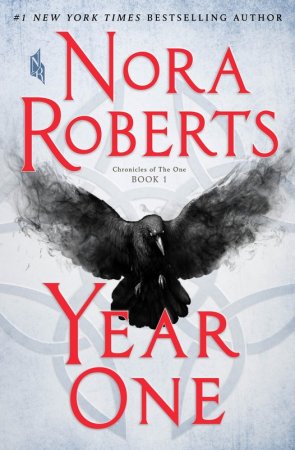 Year One
Year One A Little Fate
A Little Fate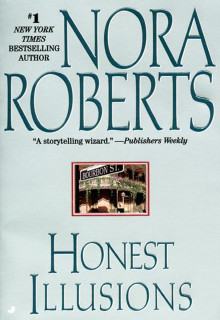 Honest Illusions
Honest Illusions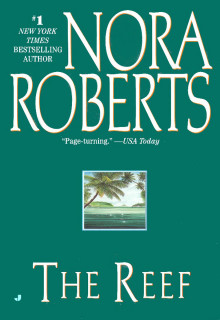 The Reef
The Reef Shelter in Place
Shelter in Place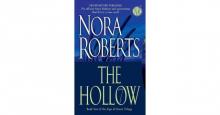 The Hollow
The Hollow Holding the Dream
Holding the Dream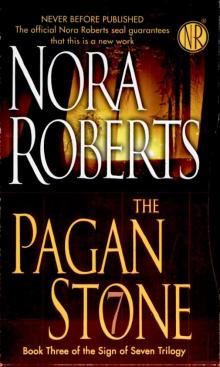 The Pagan Stone
The Pagan Stone Savour the Moment
Savour the Moment The Perfect Hope
The Perfect Hope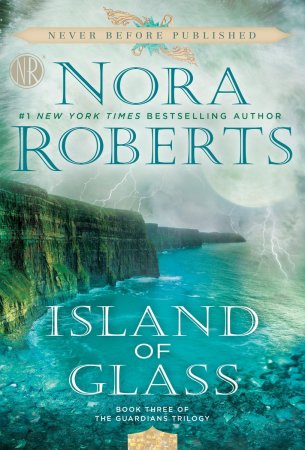 Island of Glass
Island of Glass Happy Ever After
Happy Ever After Bed of Roses
Bed of Roses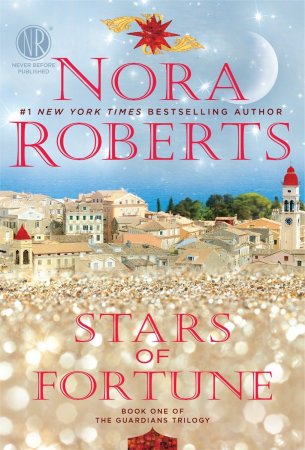 Stars of Fortune
Stars of Fortune Dark Witch
Dark Witch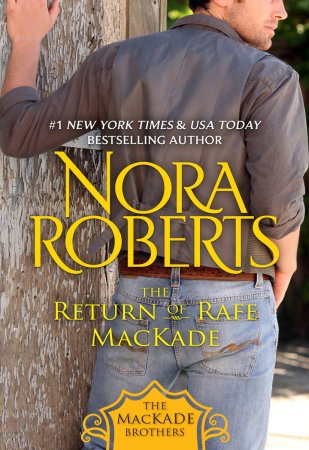 The Return of Rafe MacKade
The Return of Rafe MacKade Chesapeake Blue
Chesapeake Blue The Perfect Neighbor
The Perfect Neighbor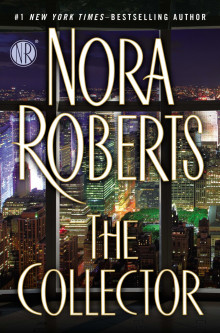 The Collector
The Collector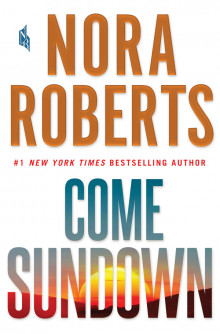 Come Sundown
Come Sundown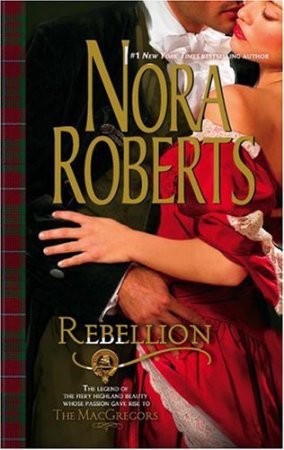 Rebellion
Rebellion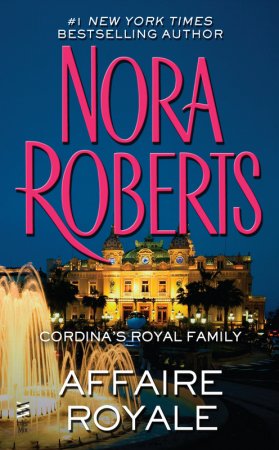 Affaire Royale
Affaire Royale Daring to Dream
Daring to Dream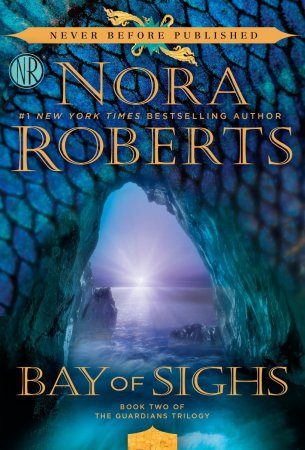 Bay of Sighs
Bay of Sighs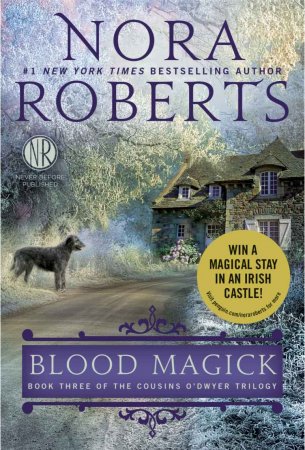 Blood Magick
Blood Magick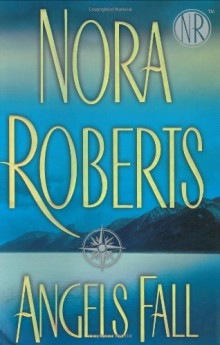 Angels Fall
Angels Fall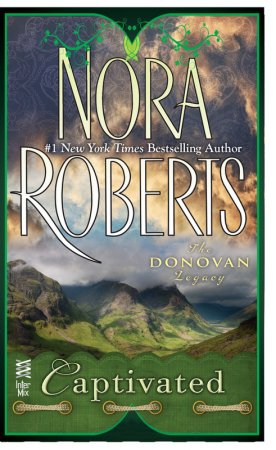 Captivated
Captivated The Last Boyfriend
The Last Boyfriend Irish Thoroughbred
Irish Thoroughbred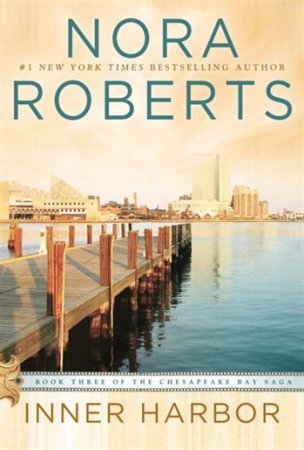 Inner Harbor
Inner Harbor The Right Path
The Right Path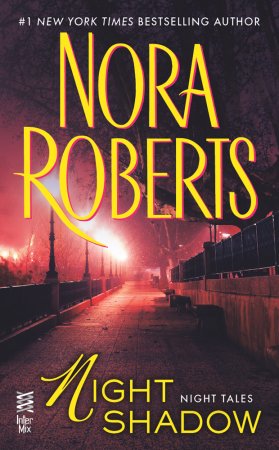 Night Shadow
Night Shadow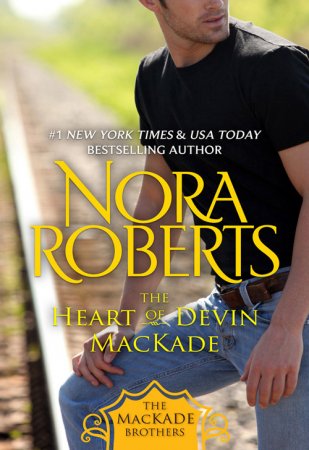 The Heart of Devin MacKade
The Heart of Devin MacKade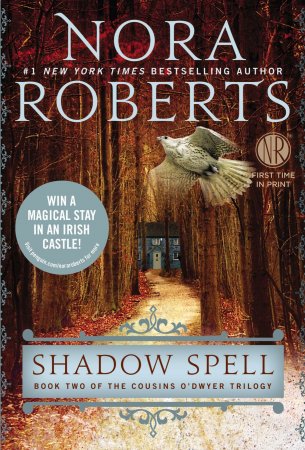 Shadow Spell
Shadow Spell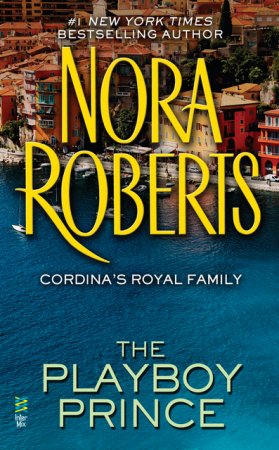 The Playboy Prince
The Playboy Prince The Fall of Shane MacKade
The Fall of Shane MacKade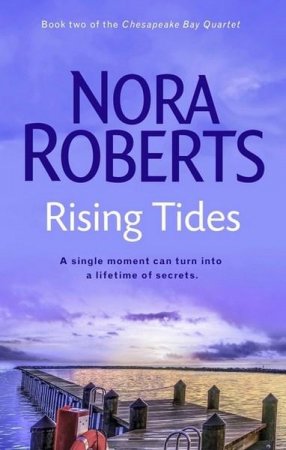 Rising Tides
Rising Tides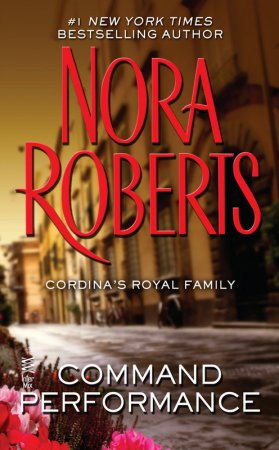 Command Performance
Command Performance Hidden Star
Hidden Star Cordina's Crown Jewel
Cordina's Crown Jewel The MacGregor Brides
The MacGregor Brides The Pride of Jared MacKade
The Pride of Jared MacKade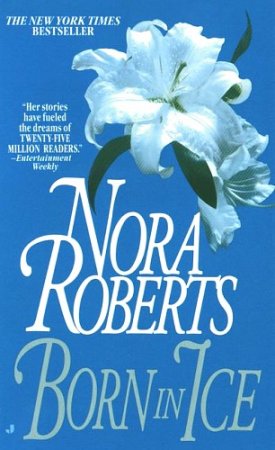 Born in Ice
Born in Ice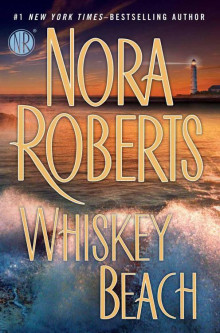 Whiskey Beach
Whiskey Beach The Last Honest Woman
The Last Honest Woman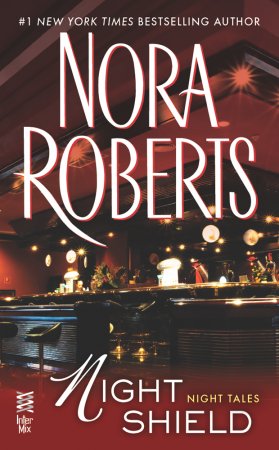 Night Shield
Night Shield Born in Shame
Born in Shame Secret Star
Secret Star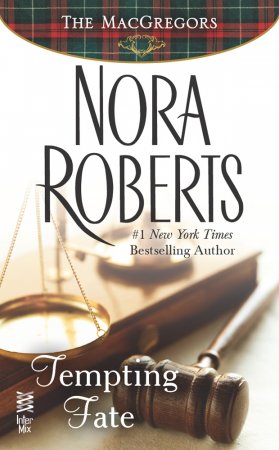 Tempting Fate
Tempting Fate Nightshade
Nightshade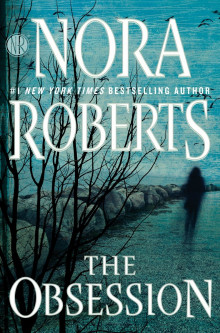 The Obsession
The Obsession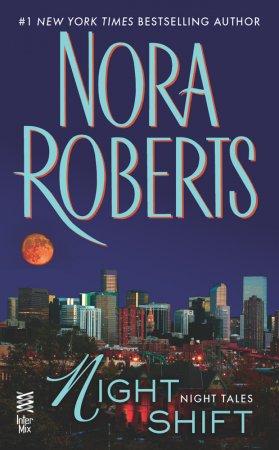 Night Shift
Night Shift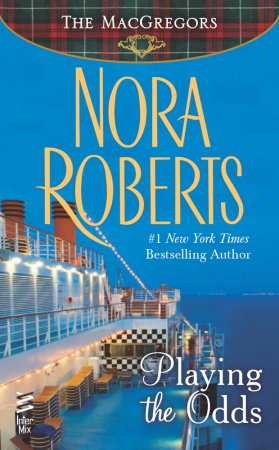 Playing The Odds
Playing The Odds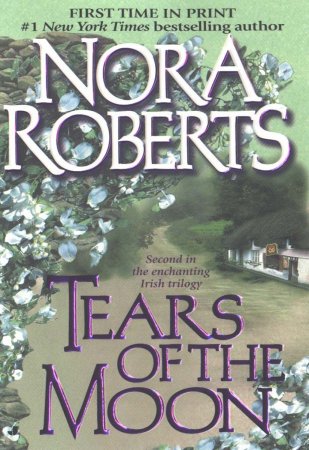 Tears of the Moon
Tears of the Moon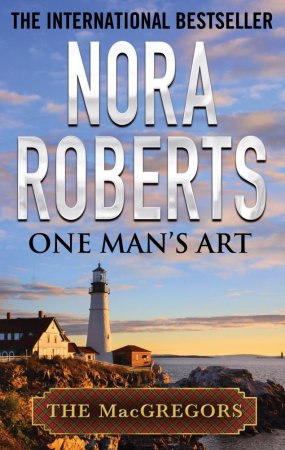 One Man's Art
One Man's Art The MacGregor Groom
The MacGregor Groom Irish Rebel
Irish Rebel Morrigan's Cross
Morrigan's Cross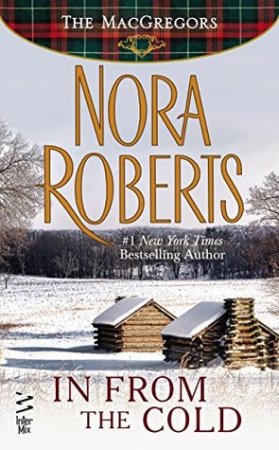 In From The Cold
In From The Cold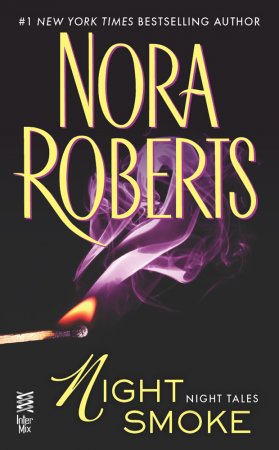 Night Smoke
Night Smoke Finding the Dream
Finding the Dream Red Lily
Red Lily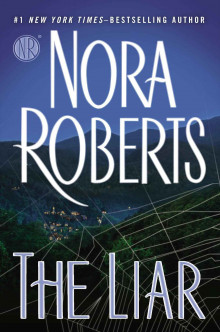 The Liar
The Liar Montana Sky
Montana Sky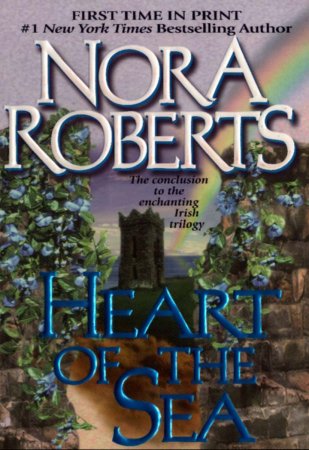 Heart of the Sea
Heart of the Sea All The Possibilities
All The Possibilities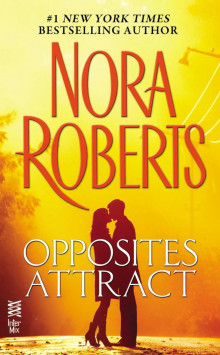 Opposites Attract
Opposites Attract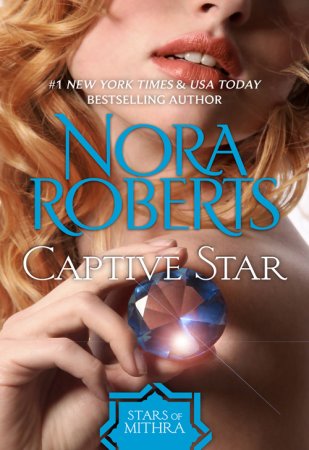 Captive Star
Captive Star The Winning Hand
The Winning Hand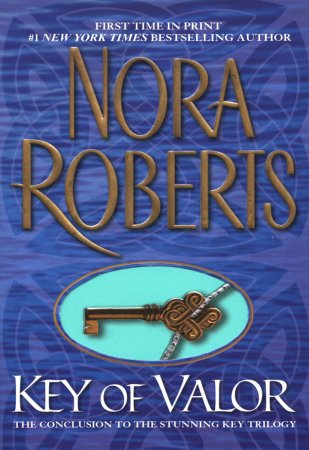 Key of Valor
Key of Valor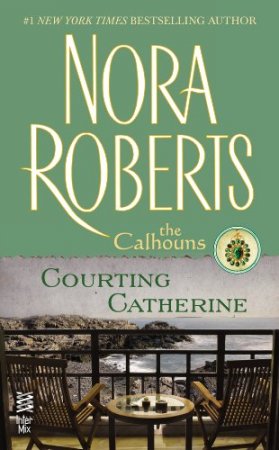 Courting Catherine
Courting Catherine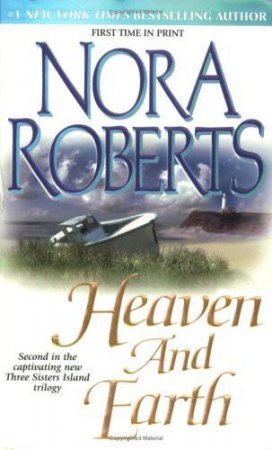 Heaven and Earth
Heaven and Earth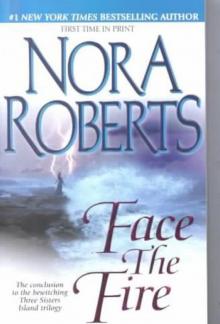 Face the Fire
Face the Fire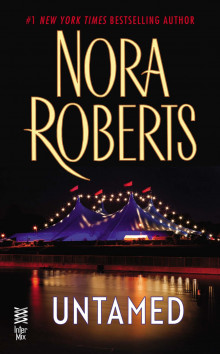 Untamed
Untamed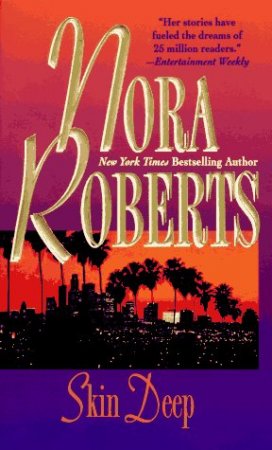 Skin Deep
Skin Deep Enchanted
Enchanted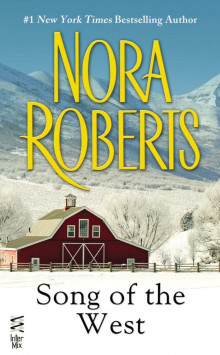 Song of the West
Song of the West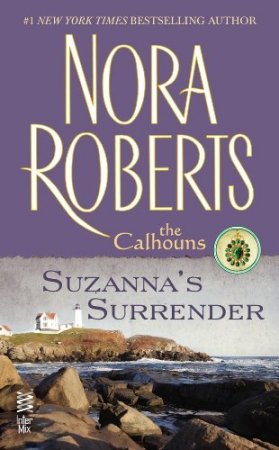 Suzanna's Surrender
Suzanna's Surrender Entranced
Entranced Dance of the Gods
Dance of the Gods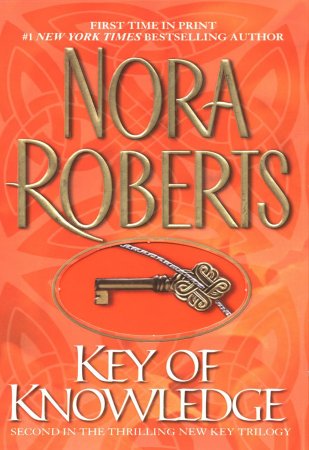 Key of Knowledge
Key of Knowledge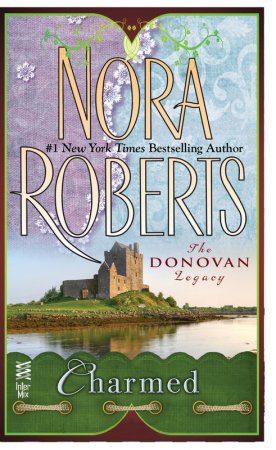 Charmed
Charmed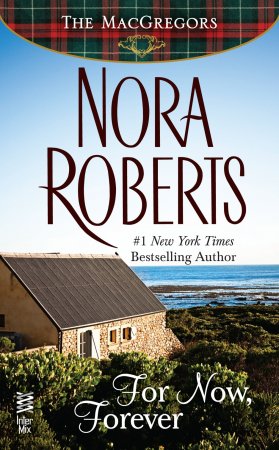 For Now, Forever
For Now, Forever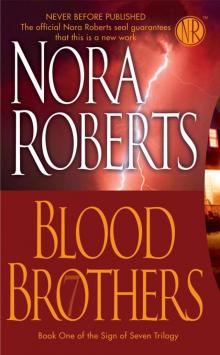 Blood Brothers
Blood Brothers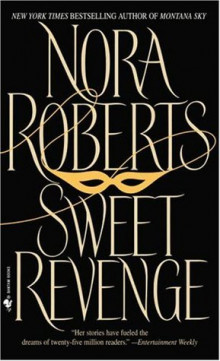 Sweet Revenge
Sweet Revenge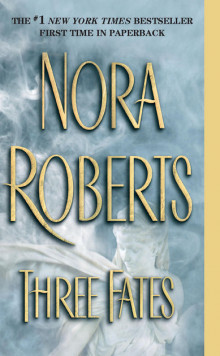 Three Fates
Three Fates Mind Over Matter
Mind Over Matter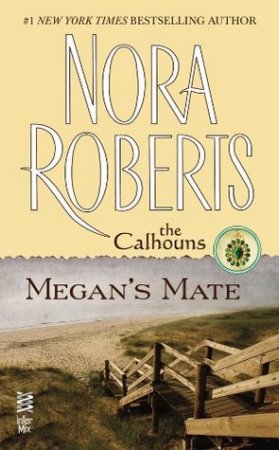 Megan's Mate
Megan's Mate Valley of Silence
Valley of Silence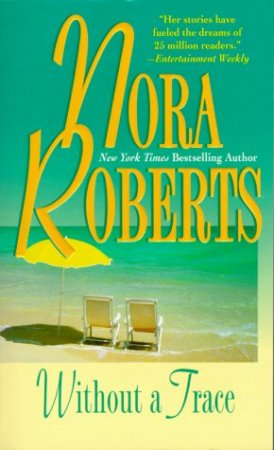 Without A Trace
Without A Trace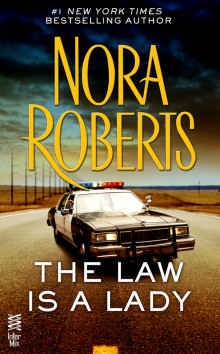 The Law is a Lady
The Law is a Lady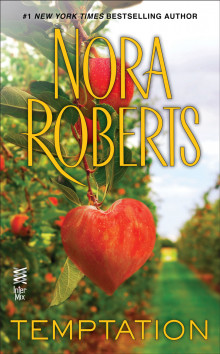 Temptation
Temptation Dance to the Piper
Dance to the Piper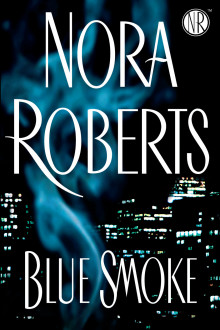 Blue Smoke
Blue Smoke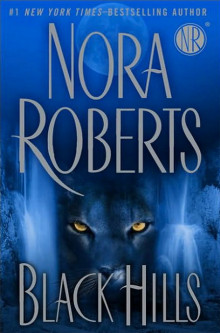 Black Hills
Black Hills The Heart's Victory
The Heart's Victory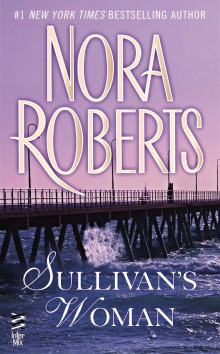 Sullivan's Woman
Sullivan's Woman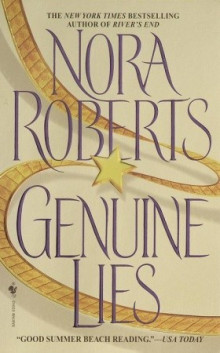 Genuine Lies
Genuine Lies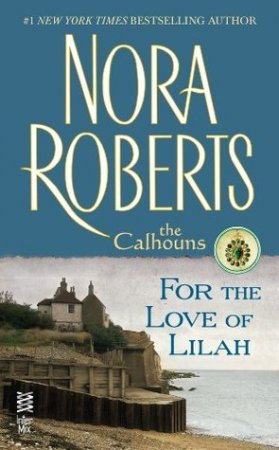 For the Love of Lilah
For the Love of Lilah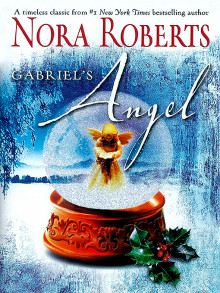 Gabriel's Angel
Gabriel's Angel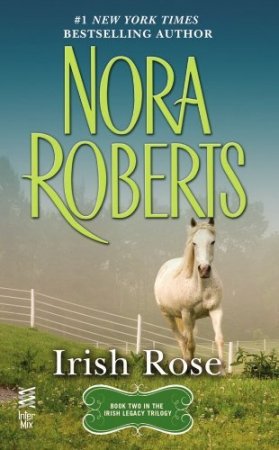 Irish Rose
Irish Rose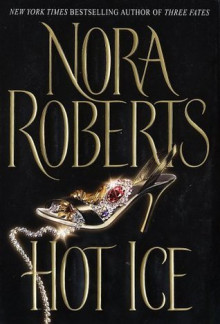 Hot Ice
Hot Ice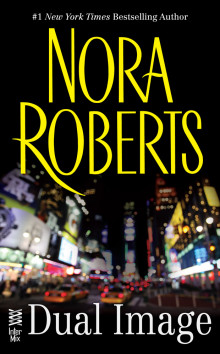 Dual Image
Dual Image Lawless
Lawless Catch My Heart
Catch My Heart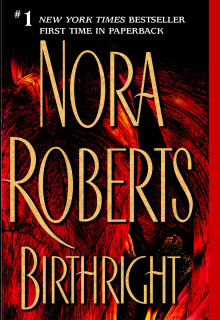 Birthright
Birthright First Impressions
First Impressions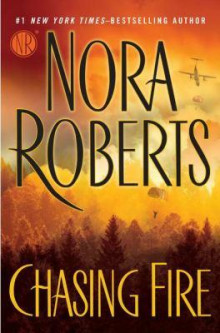 Chasing Fire
Chasing Fire Carnal Innocence
Carnal Innocence Best Laid Plans
Best Laid Plans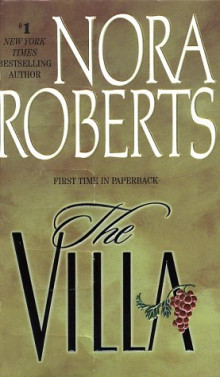 The Villa
The Villa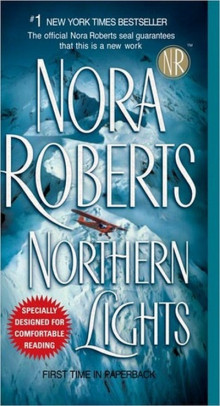 Northern Lights
Northern Lights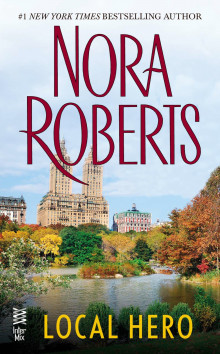 Local Hero
Local Hero Island of Flowers
Island of Flowers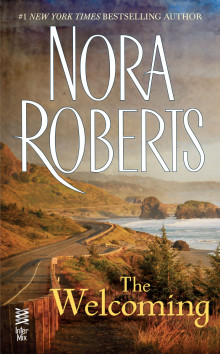 The Welcoming
The Welcoming All I Want for Christmas
All I Want for Christmas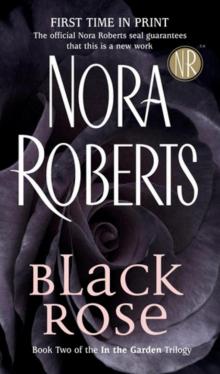 Black Rose
Black Rose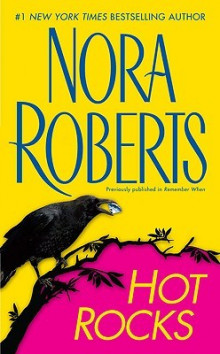 Hot Rocks
Hot Rocks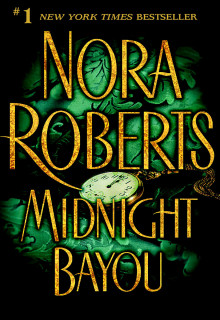 Midnight Bayou
Midnight Bayou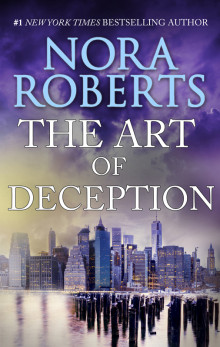 The Art of Deception
The Art of Deception From This Day
From This Day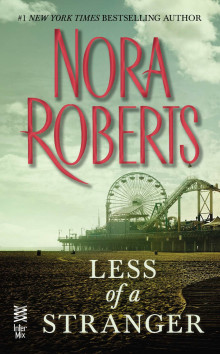 Less of a Stranger
Less of a Stranger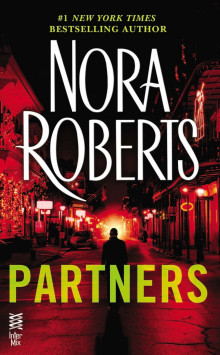 Partners
Partners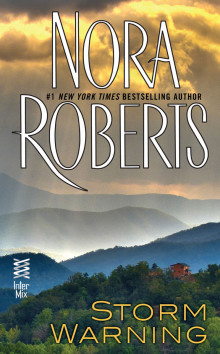 Storm Warning
Storm Warning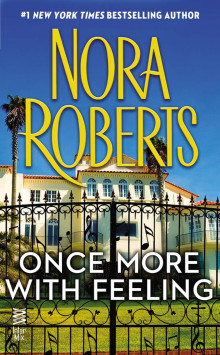 Once More With Feeling
Once More With Feeling Her Mother's Keeper
Her Mother's Keeper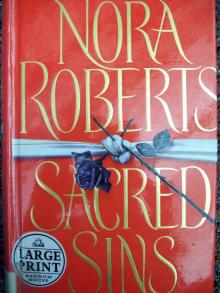 Sacred Sins
Sacred Sins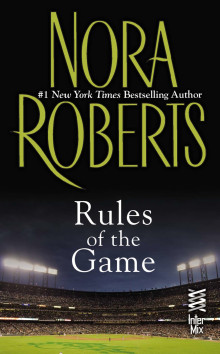 Rules of the Game
Rules of the Game Sanctuary
Sanctuary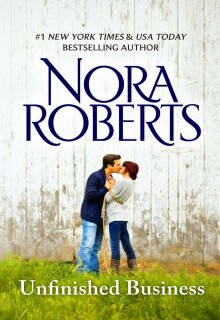 Unfinished Business
Unfinished Business Cordina's Royal Family Collection
Cordina's Royal Family Collection Dangerous Embrace
Dangerous Embrace One Summer
One Summer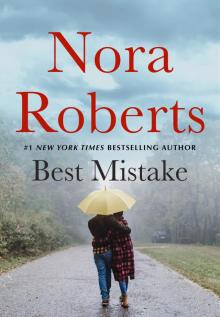 The Best Mistake
The Best Mistake Boundary Lines
Boundary Lines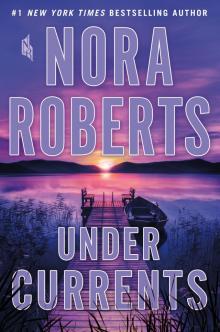 Under Currents
Under Currents The Stanislaski Series Collection, Volume 1
The Stanislaski Series Collection, Volume 1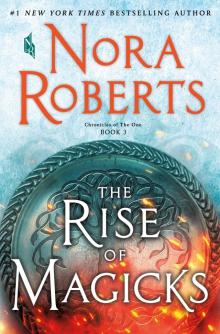 The Rise of Magicks
The Rise of Magicks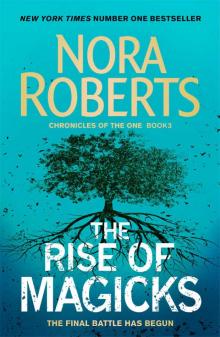 The Rise of Magicks (Chronicles of The One)
The Rise of Magicks (Chronicles of The One) The Awakening: The Dragon Heart Legacy Book 1
The Awakening: The Dragon Heart Legacy Book 1 Dance of Dreams
Dance of Dreams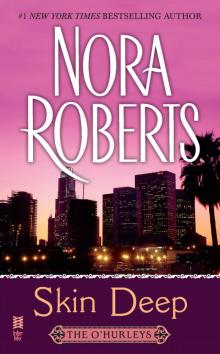 Skin Deep: The O'Hurleys
Skin Deep: The O'Hurleys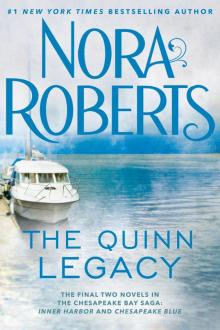 The Quinn Legacy: Inner Harbor ; Chesapeake Blue
The Quinn Legacy: Inner Harbor ; Chesapeake Blue![[Chronicles of the One 03.0] The Rise of Magicks Read online](http://i1.bookreadfree.com/11/chronicles_of_the_one_03_0_the_rise_of_magicks_preview.jpg) [Chronicles of the One 03.0] The Rise of Magicks
[Chronicles of the One 03.0] The Rise of Magicks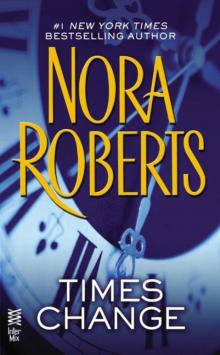 Times Change
Times Change Dance to the Piper: The O'Hurleys
Dance to the Piper: The O'Hurleys Christmas In the Snow: Taming Natasha / Considering Kate
Christmas In the Snow: Taming Natasha / Considering Kate Waiting for Nick
Waiting for Nick Summer Desserts
Summer Desserts Dream 2 - Holding the Dream
Dream 2 - Holding the Dream The Novels of Nora Roberts, Volume 2
The Novels of Nora Roberts, Volume 2 In the Garden Trilogy
In the Garden Trilogy Eight Classic Nora Roberts Romantic Suspense Novels
Eight Classic Nora Roberts Romantic Suspense Novels Best Laid Plans jh-2
Best Laid Plans jh-2 From the Heart
From the Heart Holiday Wishes
Holiday Wishes Dream 1 - Daring to Dream
Dream 1 - Daring to Dream Second Nature
Second Nature Summer Pleasures
Summer Pleasures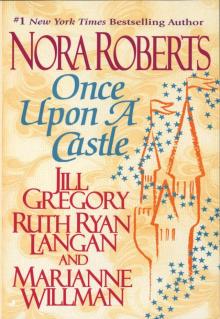 Once Upon a Castle
Once Upon a Castle Stars of Mithra Box Set: Captive StarHidden StarSecret Star
Stars of Mithra Box Set: Captive StarHidden StarSecret Star Impulse
Impulse The Irish Trilogy by Nora Roberts
The Irish Trilogy by Nora Roberts The Pride Of Jared Mackade tmb-2
The Pride Of Jared Mackade tmb-2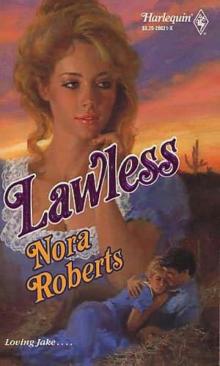 Lawless jh-3
Lawless jh-3 Taming Natasha
Taming Natasha Endless Summer
Endless Summer Bride Quartet Collection
Bride Quartet Collection Happy Ever After tbq-4
Happy Ever After tbq-4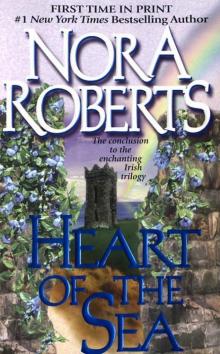 Heart Of The Sea goa-3
Heart Of The Sea goa-3 Search for Love
Search for Love Once upon a Dream
Once upon a Dream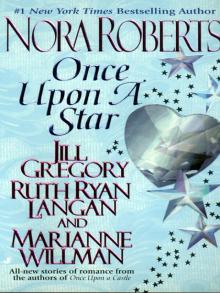 Once Upon a Star
Once Upon a Star Dream Trilogy
Dream Trilogy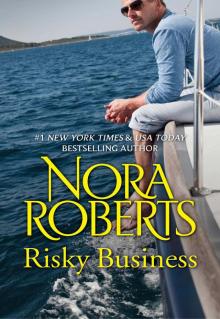 Risky Business
Risky Business The Novels of Nora Roberts, Volume 3
The Novels of Nora Roberts, Volume 3 Dream 3 - Finding the Dream
Dream 3 - Finding the Dream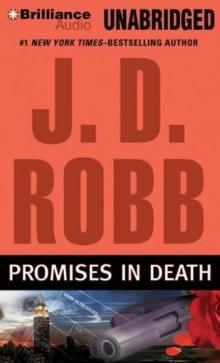 Promises in Death id-34
Promises in Death id-34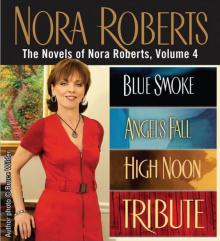 The Novels of Nora Roberts, Volume 4
The Novels of Nora Roberts, Volume 4 The Perfect Hope ib-3
The Perfect Hope ib-3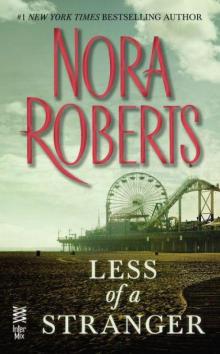 Less than a Stranger
Less than a Stranger Savour the Moment: Now the Big Day Has Finally Arrived, It's Time To...
Savour the Moment: Now the Big Day Has Finally Arrived, It's Time To... Convincing Alex
Convincing Alex Bed of Roses tbq-2
Bed of Roses tbq-2 Savour the Moment tbq-3
Savour the Moment tbq-3 Lessons Learned
Lessons Learned Key Of Valor k-3
Key Of Valor k-3 Red lily gt-3
Red lily gt-3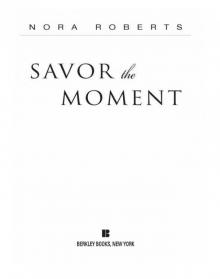 Savor the Moment
Savor the Moment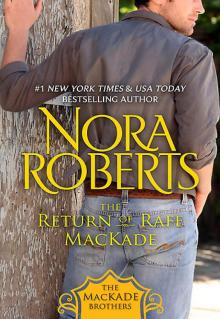 The Return Of Rafe Mackade tmb-1
The Return Of Rafe Mackade tmb-1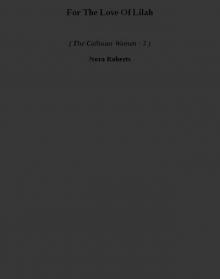 For The Love Of Lilah tcw-3
For The Love Of Lilah tcw-3 Black Rose gt-2
Black Rose gt-2 Novels: The Law is a Lady
Novels: The Law is a Lady Chesapeake Bay Saga 1-4
Chesapeake Bay Saga 1-4 Considering Kate
Considering Kate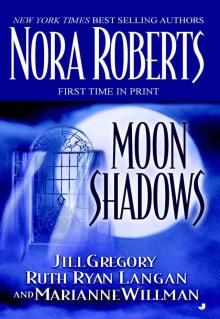 Moon Shadows
Moon Shadows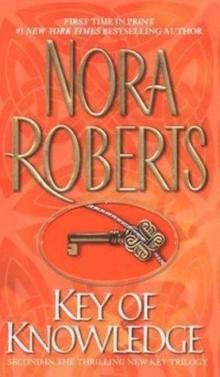 Key of Knowledge k-2
Key of Knowledge k-2 The Sign of Seven Trilogy
The Sign of Seven Trilogy Once Upon a Kiss
Once Upon a Kiss The Novels of Nora Roberts, Volume 5
The Novels of Nora Roberts, Volume 5 Suzanna's Surrender tcw-4
Suzanna's Surrender tcw-4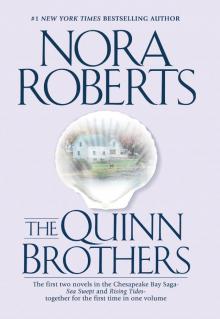 The Quinn Brothers
The Quinn Brothers Falling for Rachel
Falling for Rachel Brazen Virtue
Brazen Virtue Time Was
Time Was The Gallaghers of Ardmore Trilogy
The Gallaghers of Ardmore Trilogy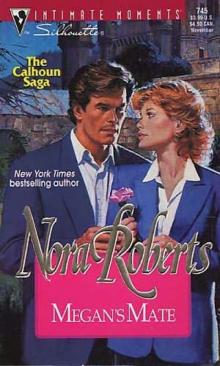 Megan's Mate tcw-5
Megan's Mate tcw-5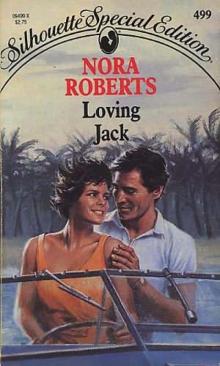 Loving Jack jh-1
Loving Jack jh-1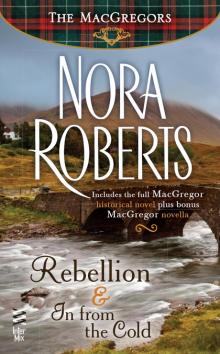 Rebellion & In From The Cold
Rebellion & In From The Cold Blue Dahlia gt-1
Blue Dahlia gt-1 The MacGregor Grooms
The MacGregor Grooms The Next Always tibt-1
The Next Always tibt-1 The Heart Of Devin Mackade tmb-3
The Heart Of Devin Mackade tmb-3 The Novels of Nora Roberts Volume 1
The Novels of Nora Roberts Volume 1 Treasures Lost, Treasures Found
Treasures Lost, Treasures Found Nora Roberts's Circle Trilogy
Nora Roberts's Circle Trilogy The Key Trilogy
The Key Trilogy The Fall Of Shane Mackade tmb-4
The Fall Of Shane Mackade tmb-4 A Will And A Way
A Will And A Way Jewels of the Sun goa-1
Jewels of the Sun goa-1 Luring a Lady
Luring a Lady